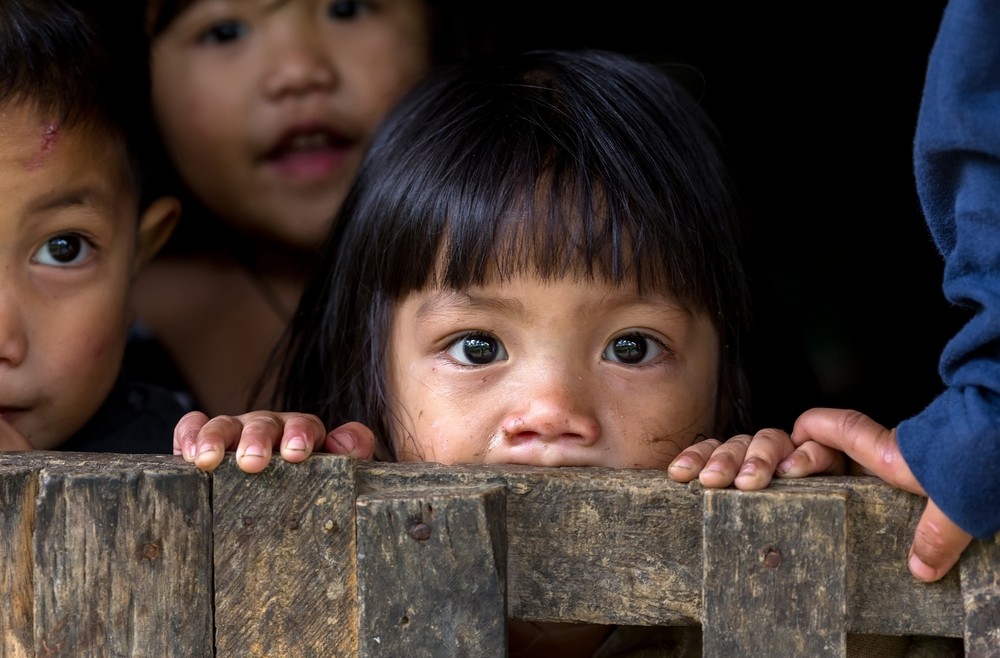It’s about refusing to allow your dreams to destroy you, writes Richard Hogan
So, my time in the Philippines has come to an end. After all the long goodbyes, mango floats, and tears I’m heading home, exhausted but with a full heart. I’m currently hurtling over the Himalayas towards the Western World, where my life awaits.
Of course, my training in psychotherapy doesn’t allow me to have such a rich experience without unpacking it all, without wading through what it all meant, and what it brought up for me and why. That’s the great privilege of being a psychotherapist, like the poet that stares into the abbey eyeing changes that have taken place intrapsychically since his last visit, my training forces me to search internally for changes that have taken place; I know I’m growing older, I know I’m changing.
The Badjao children are brutally funny in their honesty. It’s refreshing to hear someone speak the unvarnished truth, unmisted by social etiquette or fear of offense; they say it as they see it. ‘Sir Richard’ they said nearly every morning, laughing and pointing to the grey appearing in my hair ‘Ato-ah’ ‘old man!’ As I said, they say it as they see it.
But I see the changes in them too. When I visited the Badjao all those years ago some of them were young children, now they are young adults trying to find their own way in the world. And it was a little heart-breaking at times watching them struggle as they tried to forge a life for themselves. The Badjao, as a people, generally live by their vagaries. They have very little structure to their life, and time is most certainly, relative.
Waiting a few minutes could be anything from an hour up to four hours. So they find it almost impossible to fit into our compartmentalised world, where everything is precise and every second counted. I painfully observed how hard they find it to settle into structured, employed life. When I first visited them nearly ten years ago, the children were nine or ten years of age; now they’re moving into their twenties.
It’s difficult not to draw comparisons between our own students’ career trajectories and the Badjaos’. The most they can hope for, if they are not found out for being Badjao, is a job in the local mall, where they get paid a minimum wage of 320 pesos a day, the equivalent of €5. And the days are long and with little breaks. Some nights I’d see them coming home, languidly strolling down the walkway, exhausted and deflated after working a 12-hour day with only half an hour to eat. That was probably the hardest part of this year’s trip, seeing the wonderful spirit of the Badjao getting slightly crushed by a world they really have no interest in being a part of.
But I suppose we all get crushed in some way by the working world, the regularity of the commute, the banality of the work, the compromise we have to make in order to feed our families, but there was something else in what I saw, something about a way of life under threat, and blatant exploitation.
Another striking moment over the two weeks was when one of the elders came to me and coyly asked if I would have a conversation with his daughter. He told me she was very unhappy because she hadn’t been accepted for a job she wanted. She had been applying for two years to work on the cruise ships around the Pacific but was constantly being rejected. When I met with her she was very flat; by the sound of her voice and how inert she had been, you could have easily arrived at a diagnosis of depression.
In my conversation with her, she told me how a school friend had just applied for the same job and had been successful. She told me, through sobs, how guilty she felt because she was so jealous of her friend for getting the job. She really was labouring with it all. When I probed further into why she believed her friend was successful and she was not, she revealed her height was the issue. The cruise ships have a basic requirement of 5ft 3. She did not reach that requirement. We often become so consumed with an idea or expected outcome that we lose our sight.
What I mean is, we become almost blind to everything else and your blind spot is unknowable until someone shows it to you. So this young girl was consumed with a job she would never have the possibility of getting. Such endeavours can really be the source of unhappiness.
We can so easily develop tunnel vision to the detriment of everything else in our lives. And when we find ourselves labouring in a futile outcome loop, it’s time to re-evaluate and start again. This girl just needed to start seeing again. She is now working in Davao airport and free from the stress of chasing something she could never achieve. It’s not about giving up on your dreams, but about refusing to allow your dreams to destroy you.
So, my time is over, but the Badjao have taught me so much in such a short space of time. What a wonderful privilege it has been to live among a people as open, caring, and funny as the Badjao tribe of the Philippines.



